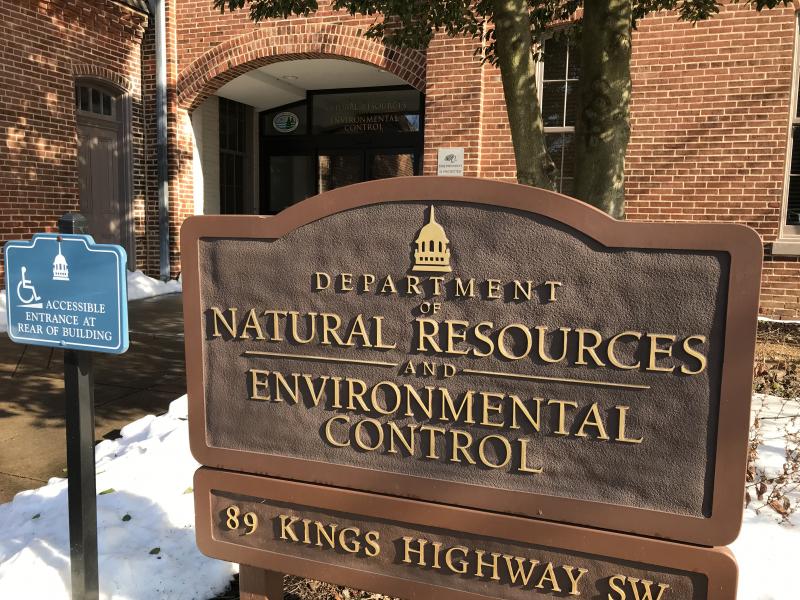Environmental board rejects appeal of Rehoboth outfall
The Rehoboth Beach ocean outfall project has withstood an appeal that could have potentially halted construction on the $52.5 million project.
Delaware’s Environmental Appeals Board, by 5-1 vote, dismissed an appeal of an order that allowed Rehoboth Beach to begin construction, ruling that they did not have jurisdiction over an appeal brought by Suzanne Thurman, executive director of the Marine Education Research and Rehabilitation Institute, and that Thurman lacked standing to bring an appeal.
Thurman sought to impose conditions on former Delaware Department of Natural Resources and Environmental Control Secretary David Small’s decision to approve an environmental impact statement presented by Rehoboth Beach officials, which allowed the city to receive state funding for the project.
DNREC attorney William Kassab and City Solicitor Glenn Mandalas argued Thurman lacked standing to bring the appeal and that the board lacked jurisdiction to hear it.
Thurman argued that the project did not comply with the federal Marine Mammal Protection Act or the Endangered Species Act. Kassab said DNREC and the appeals board had no authority to rule over federal laws and that Thurman should have taken her appeal to federal agencies and not to the state. Thurman said the state is bound to comply with federal regulations.
Thurman also argued that Small’s order should be amended to allow for independent testing of the ocean floor, also known as the benthic layer, around the outfall. The diffuser dispersing the treated effluent into the ocean will be located just off the ocean floor. Thurman said that testing by DNREC would be biased toward the city. Kassab said independent benthic testing was not sought at public hearings or requested by anyone before Small’s ruling in January 2015. He said the city recently contracted with a third-party vendor to conduct benthic testing, which Thurman later said was satisfactory. Kassab said benthic testing is also required as part of the city’s subaqueous land permit for the project.
Thurman’s appeal also requested the city to use electrocoagulation to treat its wastewater. The city’s plant currently uses a secondary treatment process, which removes solids and other organic material from raw wastewater. Electrocoagulation uses an electric charge to remove solids, grease, oil and heavy metals from raw wastewater. Thurman said electrocoagulation is a much more effective method for treating wastewater to make sure what is being pumped to the ocean is free of pollutants.
Kassab said the appeals board has no authority to mandate how Rehoboth treats its wastewater and that the city already treats its wastewater beyond DNREC standards.
Finally, Thurman argued that the city had not met Small’s requirement to address its stormwater system, particularly five stormwater outfalls that empty into the ocean. Thurman said the city has not proposed or sought to fund any solution to improving stormwater quality. Kassab said Small’s order mandated only that the city study ways to improve stormwater management.
Kassab disputed Thurman’s standing to bring an appeal, noting existing case law states an appellant must show they are uniquely affected and done harm, and not merely a concerned citizen. He said if the MERR Institute had filed the appeal as an organization, the case might be different.
Thurman said she did have standing, since she is the one who would have to deal with potential animal strandings caused by the outfall project. She said the MERR Institute did not file as an organization both for financial reasons and because it was difficult to find an environmental lawyer in Delaware who did not have a potential conflict of interest with the case. With that, she decided to file on her own and represent herself. Thurman filed her appeal in July, but the hearing was not scheduled until December, after construction had started. The hearing was then rescheduled for Jan. 9 in Dover after a second appellant, Gregg Rosner of the Delaware Chapter of the Surfrider Foundation, withdrew his appeal because it was basically the same as Thurman’s.
The hearing was heard at the Richardson and Robbins Building in Dover, in a mostly empty auditorium, save for DNREC officials and Rehoboth Mayor Paul Kuhns. Despite the nature of the proceedings, it was a cordial affair, as Kassab and Mandalas both made a point of praising Thurman’s work in the community. The hearing was not adversarial.
Thurman said the board’s ruling was disappointing but she does not plan to stop acting as a watchdog monitoring the construction and operation of the outfall. She said she might consider further actions regarding the project following federal regulations.
“Obviously, the city is pleased with the outcome,” Mandalas said. “It closes another important chapter in a project that has been a 20-year endeavor.”
Former Mayor Sam Cooper shepherded the project through its development beginning in 1998 when the city came under court order to cease dumping its treated effluent into the Lewes-Rehoboth Canal. Cooper said he was glad to see the appeal resolved so the project can move forward to conclusion.
“It closes a chapter in this long saga,” he said.
His successor, Kuhns, said, “It’s been a long, drawn-out process. We’re happy it went the way it did.”
The board will release a written decision on the appeal within the next 90 days.
Ryan Mavity covers Milton and the court system. He is married to Rachel Swick Mavity and has two kids, Alex and Jane. Ryan started with the Cape Gazette all the way back in February 2007, previously covering the City of Rehoboth Beach. A native of Easton, Md. and graduate of Towson University, Ryan enjoys watching the Baltimore Ravens, Washington Capitals and Baltimore Orioles in his spare time.

























































